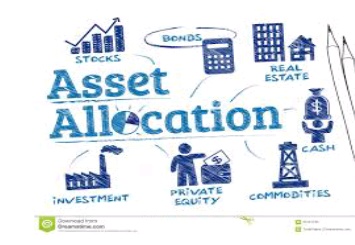Hey everyone!!! Last weeks edition was about Developing a financial plan simply put being responsible with your money.
Akinbulumo Seth is back with another interesting topic for this week.
Enjoy, share , comment and subscribe.
FINANCE MANAGEMENT 4- Asset Allocation

I’d like to start today by asking if this series has been as beneficial to you in achieving your short-term and long-term financial goals as much as it has been to me?
Asset-allocation is one proven model for effective finance management. It is a systematic means of consciously and carefully allocating your income according to a scale of preferential needs and investment. Asset-allocation model covers the need to save now in bits for future long-term expenditures like, buying a car, starting a business or growing a family. Failure to plan for these long-term consuming needs and expenditures will only render you handicapped or overwhelmed when the season comes. To do well financially, you must have a plan for these different portfolios, again, according to your scale of preferential needs.
It is advised that your asset-allocation plan should cover at least 30 percent of your weekly, monthly or annual income. To work strictly by this rule, consider an automatic cash-allocation program; meet with your financial institution to automatically deduct 30 percent of your income to certain accounts or money-markets to carter for these future needs. Many do not ever think of building educational funds for their children’s future educational needs now in bits or planning for a house you intend acquiring in the nearest future now, will in no little way help relief the financial stress when it’s the right time.
The bottom-line goal of asset-allocation is long-term security and financial balance. With asset-allocation, you can find the right mix of investments (from low risk, to middle risk and then high risk) to give you the best overall return and that will be a reasonable hedge should your assumptions about what certain type of investments you do are wrong or if the asset fails to perform as expected.










